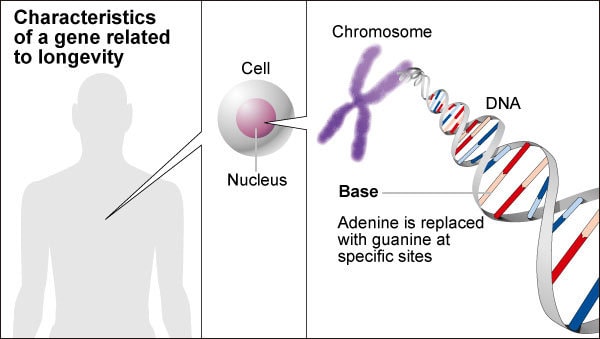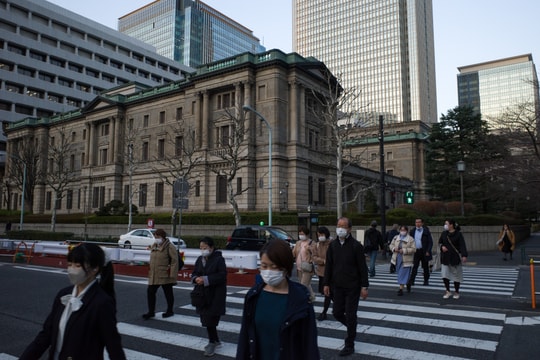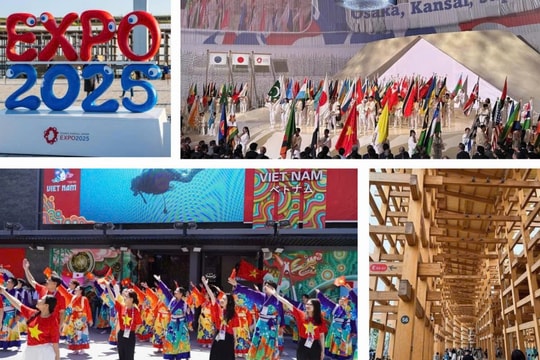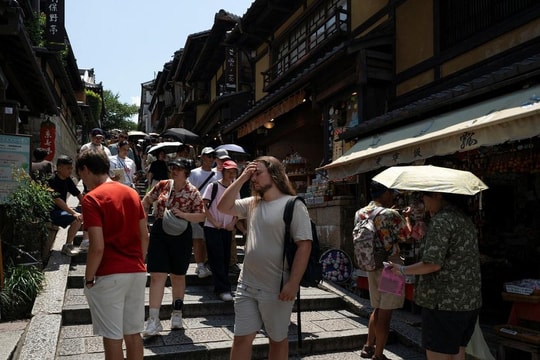Japan discovers gene that helps people live to be 100 years old
Japanese researchers have identified specific characteristics of a gene that helps humans live to be a hundred years old.
 |
| Japanese scientists have discovered a gene that is believed to help humans live to be a hundred years old - Photo: Asahi Shimbun |
According to Asahi newspaper (Japan), this discovery could pave the way for research and development of drugs that prolong human life.
Scientists from the Tokyo Metropolitan Institute of Gerontology, Keio University and several other research institutes said that centenarians and those who live to be close to that age all share specific characteristics of a gene that can help prevent the spread of cancer cells and help form bones.
"The gene we recently discovered is not the only factor that determines human longevity. But we believe it plays a role in anti-aging in one way or another," said Masashi Tanaka, head of clinical trials at the Tokyo Metropolitan Institute of Gerontology.
Although exercise and proper nutrition play a significant role in determining a person's lifespan, experts believe that people with such admirable longevity have been "gifted" with a special gene. This gene is the deciding factor of 20-30% of their lifespan.
Researchers collected blood and other samples to gather genetic information from a study group of 530 people aged 95 or older, most of whom were over 100. Another group included 4,312 people under 80.
Scientists also studied another group of 952 Chinese people, including 447 who lived to be 95 years old or older.
Along with the APOE gene, which is known to be linked to longevity in humans, researchers found that long-lived people shared traits in a gene called CLEC3B, which is involved in the production of tetranectin, a protein involved in the metastasis of malignant tumors and bone formation.
According to TTO
| RELATED NEWS |
|---|








